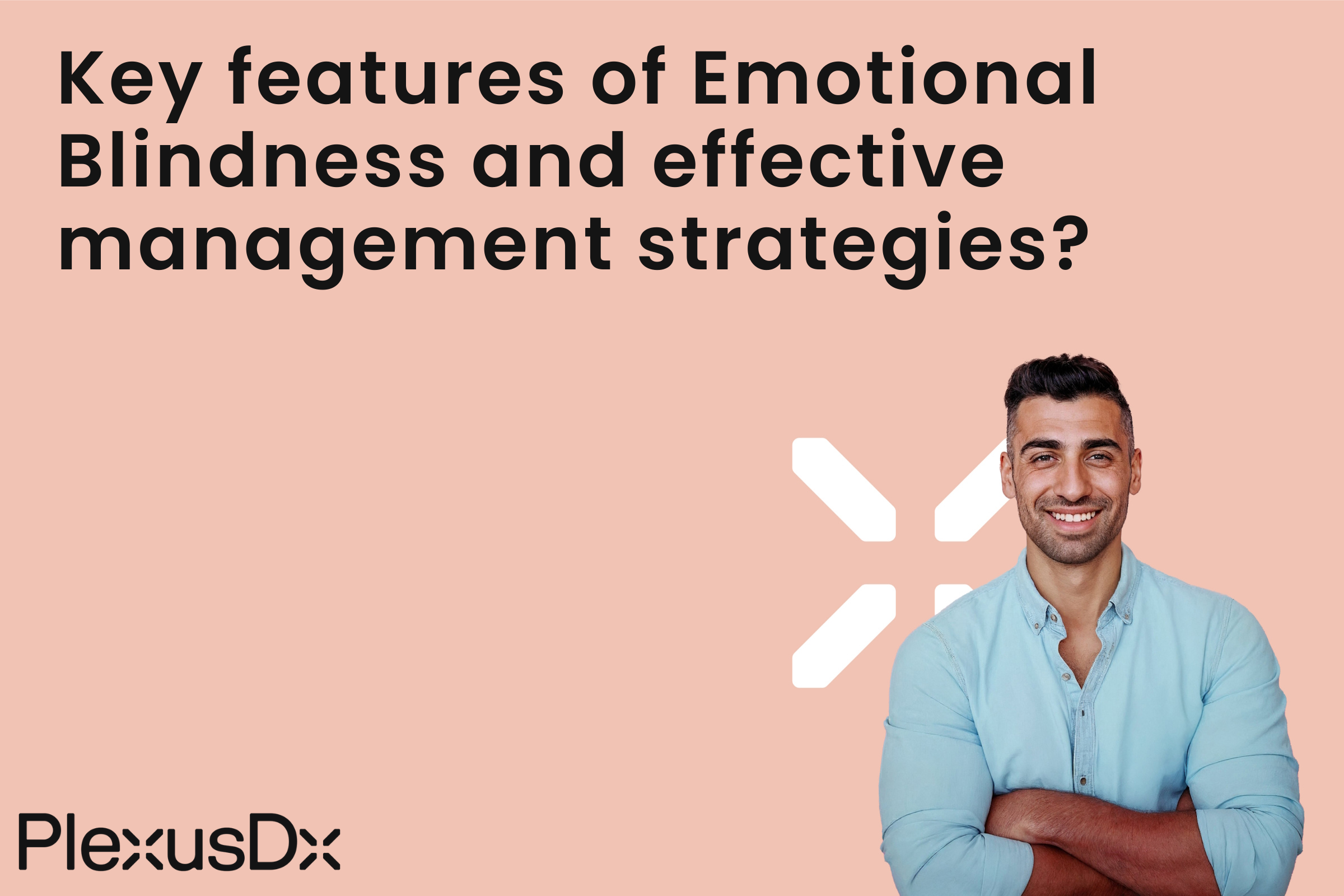Emotional Blindness: Do you struggle to express your emotions through words?
Picture living in a world where emotional expression functions like a maze without any discernible route. People who suffer from alexithymia experience this as their everyday reality. The blog post examines alexithymia by analyzing its features and effects on mental health while presenting methods to manage this uncommon attribute.
Alexithymia:
Alexithymia is a subclinical condition which originates from Greek terminology meaning "no words for emotions" and involves difficulties in both identifying and expressing personal emotional states. Although alexithymia does not fall under the category of mental disorders its effects can profoundly affect a person's mental health along with their social interactions. Psychiatric disorders frequently exhibit this trait although it can appear in the general population as well.
Key Features of Alexithymia:
- Difficulty Identifying and Describing Feelings: People who have alexithymia experience challenges when trying to identify and express their emotions clearly.
- Limited Imagination: The absence of a developed inner fantasy world combined with an inclination toward factual information over personal reflection defines this characteristic.
- Concrete Thinking: Individuals who experience alexithymia show a preference for processing concrete information instead of abstract concepts.
- Externally-Oriented Thinking: People with alexithymia prioritize external occurrences above their internal emotional states.
- Difficulty Distinguishing Feelings from Bodily Sensations: Physical sensations sometimes mimic emotional arousal which creates barriers to correct emotional identification.
Alexithymia creates substantial difficulties in emotional recognition and expression which leads to negative effects on life experiences and interpersonal relationships. People who have alexithymia tend to develop psychosomatic conditions in which their emotional problems turn into physical symptoms. When people cannot express their emotions it becomes difficult to achieve successful outcomes in psychological therapy because they cannot fully benefit from therapeutic interventions.
Research findings indicate that up to 13% of people experience alexithymia with males showing a higher incidence rate. Psychiatric conditions such as autism spectrum disorder, post-traumatic stress disorder, depression, anxiety disorders, and eating disorders frequently present this particular trait. The development of alexithymia can be influenced by brain injury as well as childhood trauma combined with aging, inadequate education levels and financial hardship in addition to poor emotional intelligence capacity. Research on twin genetics demonstrates that alexithymia has an inherited aspect and people have a greater chance of developing this trait when a close family member suffers from it. Medical professionals diagnose alexithymia through self-report questionnaires and clinical interviews and make sure to differentiate it from other conditions that display similar symptoms.
Managing Alexithymia:
The management of alexithymia necessitates unique methods that improve both emotional recognition and emotional expression. Working alongside mental health experts provides essential guidance for handling the difficulties associated with this characteristic. Effective management approaches include:
- Therapy: Participating in psychological treatments dedicated to teaching emotional regulation and recognition skills.
- Mindfulness and Emotional Awareness Exercises: Practicing techniques that encourage internal emotional focus.
- Communication Skills Training: Developing better techniques to express emotions during interpersonal communication.
The emotional processing difficulties that alexithymic individuals face constitute a distinctive set of challenges. Through the understanding of this trait's features combined with specialized management approaches people can boost their emotional awareness and elevate their total well-being. For those who identify with the experiences of alexithymia PlexusDx's Precision Health & Wellness tests offer personalized genetic insights into mental health predispositions. Start taking active measures now to learn about and take control of your emotional health. Remember, your emotional health matters. Explore your self-discovery path while getting support whenever you need it. By working together we can understand alexithymia better and build stronger relationships with our emotions.

Share:
Which diseases link to low IL-10 levels and how can genetic testing clarify its health impact?
How do Chloride genetic predispositions affect health? How can PlexusDx testing help?